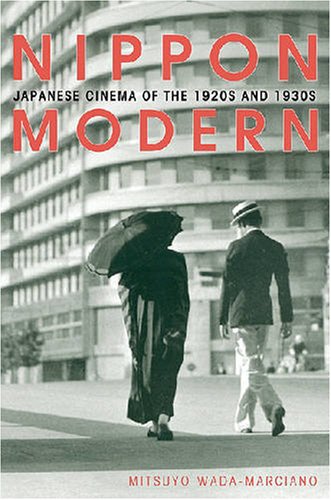

Most ebook files are in PDF format, so you can easily read them using various software such as Foxit Reader or directly on the Google Chrome browser.
Some ebook files are released by publishers in other formats such as .awz, .mobi, .epub, .fb2, etc. You may need to install specific software to read these formats on mobile/PC, such as Calibre.
Please read the tutorial at this link. https://ebooknice.com/page/post?id=faq
We offer FREE conversion to the popular formats you request; however, this may take some time. Therefore, right after payment, please email us, and we will try to provide the service as quickly as possible.
For some exceptional file formats or broken links (if any), please refrain from opening any disputes. Instead, email us first, and we will try to assist within a maximum of 6 hours.
EbookNice Team

Status:
Available0.0
0 reviewsWada-Marciano's thought-provoking examinations illustrate the reciprocal relationship between cinema and Japan's vernacular modernity--what Japanese modernity actually meant to Japanese. Neither a belated imitation of Western modernity nor an isolated cultural invention, Japanese modernity began as a series of negotiations of cultural influences constructed out of local needs. During the interwar period, Japan's film industry began to compete with Western cinemas, producing and distributing its own films and negotiating its place in the Japanese market. It managed to shift the locus of dominance away from Hollywood films by addressing the new classes of labor with self-reflexive subjects and narratives. Film images of salaried men, modern girls, college students, and nuclear families made possible the sudden arrival and rapid proliferation of the modern consumer subject in Japan.
By searching out connections between history and film texts, Wada-Marciano offers a new approach to understanding Japan's national cinema. Her thorough and thoughtful analyses of dozens of films within the cultural contexts of Japan contribute to the current inquiry into non-Western vernacular modernities. Nippon Modern will appeal to a wide range of readers in diverse disciplines, including intellectual history, gender studies, and literature, in addition to film/visual studies and Japanese cultural studies.